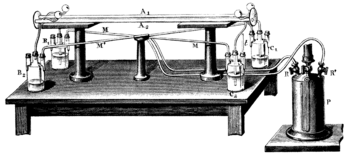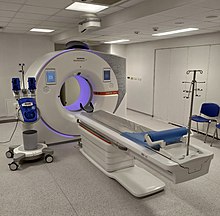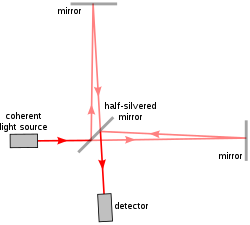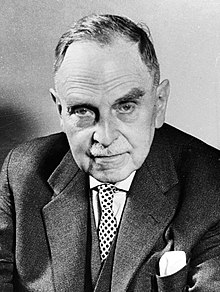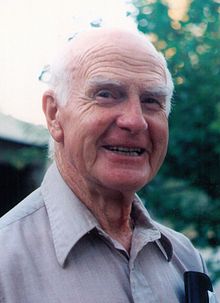| Physics Portal Main Page | Physics Textbook | Wikiprojects and things to do |
The Physics Portal


Physics is the natural science of matter, involving the study of matter, its fundamental constituents, its motion and behavior through space and time, and the related entities of energy and force. Physics is one of the most fundamental scientific disciplines. A scientist who specializes in the field of physics is called a physicist.
Physics is one of the oldest academic disciplines and, through its inclusion of astronomy, perhaps the oldest. Over much of the past two millennia, physics, chemistry, biology, and certain branches of mathematics were a part of natural philosophy, but during the Scientific Revolution in the 17th century these natural sciences emerged as unique research endeavors in their own right. Physics intersects with many interdisciplinary areas of research, such as biophysics and quantum chemistry, and the boundaries of physics are not rigidly defined. New ideas in physics often explain the fundamental mechanisms studied by other sciences and suggest new avenues of research in these and other academic disciplines such as mathematics and philosophy.
Advances in physics often enable new technologies. For example, advances in the understanding of electromagnetism, solid-state physics, and nuclear physics led directly to the development of new products that have dramatically transformed modern-day society, such as television, computers, domestic appliances, and nuclear weapons; advances in thermodynamics led to the development of industrialization; and advances in mechanics inspired the development of calculus. (Full article...)

An atomic line filter (ALF) is a more effective optical band-pass filter used in the physical sciences for filtering electromagnetic radiation with precision, accuracy, and minimal signal strength loss. Atomic line filters work via the absorption or resonance lines of atomic vapors and so may also be designated an atomic resonance filter (ARF).
The three major types of atomic line filters are absorption-re-emission ALFs, Faraday filters and Voigt filters. Absorption-re-emission filters were the first type developed, and so are commonly called simply "atomic line filters"; the other two types are usually referred to specifically as "Faraday filters" or "Voigt filters". Atomic line filters use different mechanisms and designs for different applications, but the same basic strategy is always employed: by taking advantage of the narrow lines of absorption or resonance in a metallic vapor, a specific frequency of light bypasses a series of filters that block all other light. (Full article...)Did you know -

- ... that it is estimated that The Sun burns around 620 million metric tons of Hydrogen per second into 616 million metric tons of Helium?
- ... that the Big Bang was secured as the best theory for the origin of the universe by the discovery of the cosmic microwave background radiation in 1964?
- ... that neutron stars are so dense (10¹⁷ kg/m³) that a teaspoonful (5 mL) would have ten times the mass of the total human population?
Selected image -

Newton's cradle, named after Sir Isaac Newton, is a device that demonstrates conservation of momentum and energy via a series of swinging spheres. When one on the end is lifted and released, the resulting force travels through the line and pushes the last one upward.
Related portals
August anniversaries
- 2 August 1932 – The positron is discovered by Carl D. Anderson.
- 2 August 1939 – Einstein and Leó Szilárd urge Franklin D. Roosevelt to begin the Manhattan project.
- 3 August 1958 – USS Nautilus under the Arctic ice cap.
- 3 August 1972 – U.S. Senate ratifies Anti-Ballistic Missile Treaty.
Birthdays
- 1820 - John Tyndall 2 August
- 1871 - Ernest Rutherford 30 August
- 1887 - Erwin Schrödinger 12 August
- 1902 - Paul Dirac 8 August
- 1931 – Roger Penrose 8 August
- 1934 - Valery Bykovsky 2 August
- 1951 - Edward Witten 26 August
- 1959 – Koichi Tanaka 3 August
Deaths
- 2 August 1922 – Alexander Graham Bell
- 3 August 1942 – Richard Willstätter, Nobel laureate
- 28 August 2006 - Melvin Schwartz, Nobel laureate
General images
Categories

Fundamentals: Concepts in physics | Constants | Physical quantities | Units of measure | Mass | Length | Time | Space | Energy | Matter | Force | Gravity | Electricity | Magnetism | Waves
Basic physics: Mechanics | Electromagnetism | Statistical mechanics | Thermodynamics | Quantum mechanics | Theory of relativity | Optics | Acoustics
Specific fields: Acoustics | Astrophysics | Atomic physics | Molecular physics | Optical physics | Computational physics | Condensed matter physics | Nuclear physics | Particle physics | Plasma physics
Tools: Detectors | Interferometry | Measurement | Radiometry | Spectroscopy | Transducers
Background: Physicists | History of physics | Philosophy of physics | Physics education | Physics journals | Physics organizations
Other: Physics in fiction | Physics lists | Physics software | Physics stubs
Physics topics
Classical physics traditionally includes the fields of mechanics, optics, electricity, magnetism, acoustics and thermodynamics. The term Modern physics is normally used for fields which rely heavily on quantum theory, including quantum mechanics, atomic physics, nuclear physics, particle physics and condensed matter physics. General and special relativity are usually considered to be part of modern physics as well.
More recognized content
Associated Wikimedia
The following Wikimedia Foundation sister projects provide more on this subject:
 Commons
Commons
Free media repository Wikibooks
Wikibooks
Free textbooks and manuals Wikidata
Wikidata
Free knowledge base Wikinews
Wikinews
Free-content news Wikiquote
Wikiquote
Collection of quotations Wikisource
Wikisource
Free-content library Wikiversity
Wikiversity
Free learning tools Wikivoyage
Wikivoyage
Free travel guide Wiktionary
Wiktionary
Dictionary and thesaurus
Sources
- ^ In this Polish name, the surname is Skłodowska.
Portals on Wikipedia
Purge server cache









